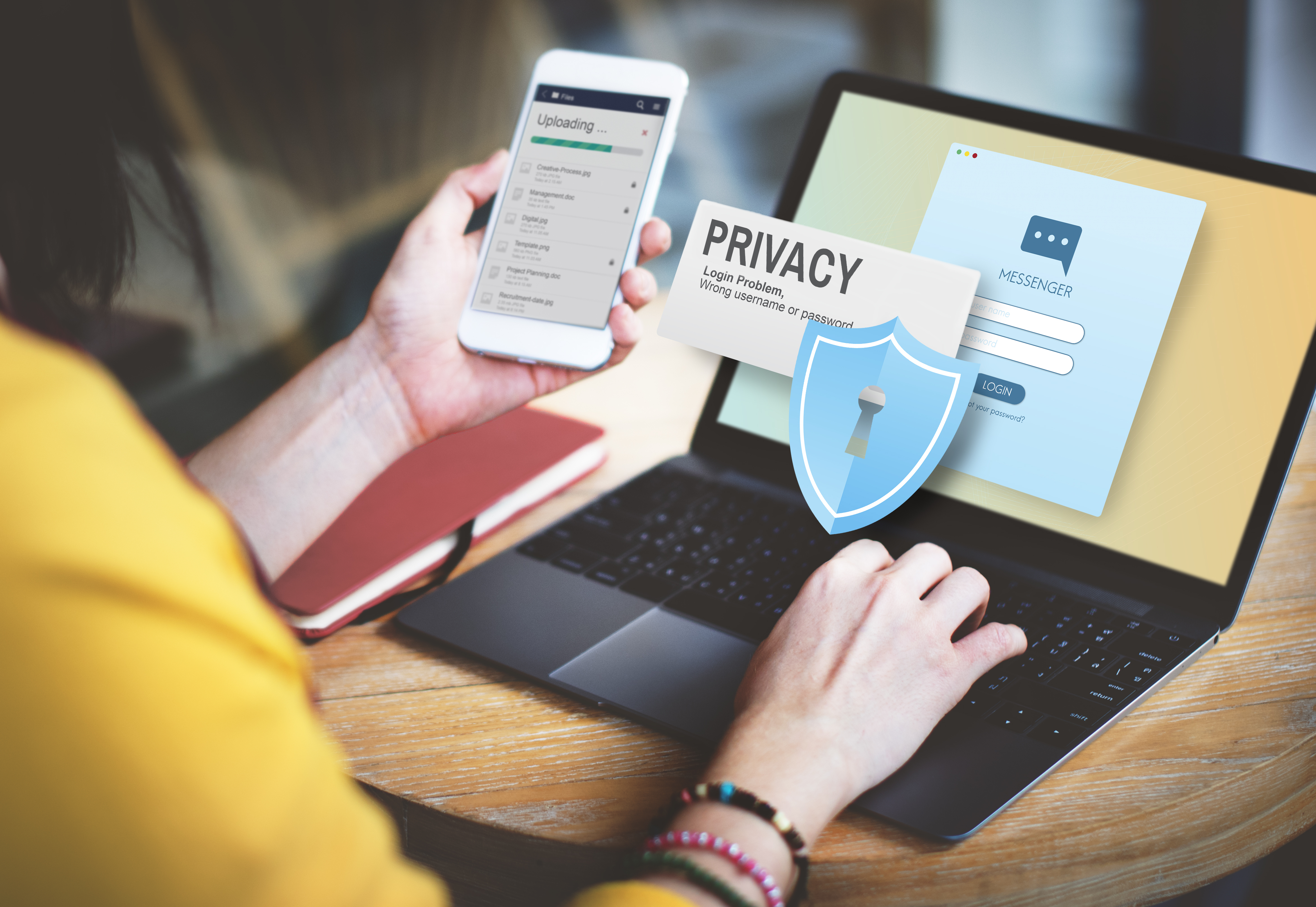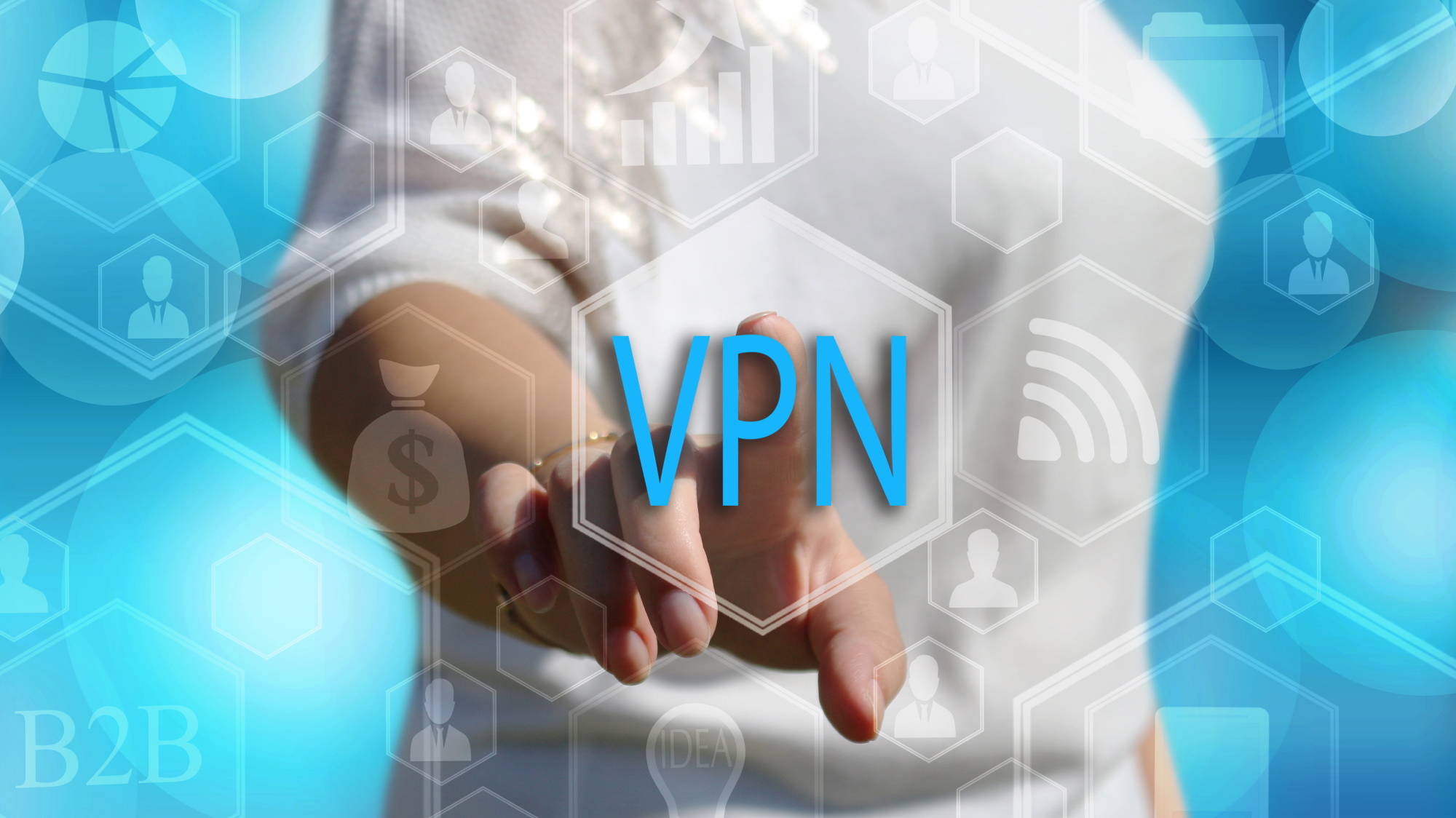How does a VPN protect your privacy and anonymity?
Staying secure and private online is more important than ever

It's no secret nowadays that the Internet is no more than a tap away, and while that's great for productivity and entertainment, it can prove a problem for those who prefer to stay private and secure. Cookies are installed in the background when you visit a website, advertisers serve us ads based on our browser history, and our ISP knows which sites we’ve visited. Only one of the best VPN services can help.
And, it goes far deeper than that. There are voicebots like Google Assistant that keep a record of every voice command we've ever made. Unless you opt-out on purpose, Google also keeps a record of your website visits.
It's also worth remembering that these are the legal, well-known services keeping tabs on us. It doesn’t include the illegal spying networks and government surveillance programs we don’t know about. These days, it’s not a stretch to say we're never alone online.
- Don't want to pay for a VPN? Here are the best free VPN services
- Looking specifically to stream? See the best Netflix VPN
- Need a provider for Apple? Check out the best Mac VPN
Using a VPN as a solution
While it’s true that Google and Amazon record what you say and track website visits, and that Facebook is well-known for serving ads that match what we search and what we do online, that doesn’t have to be the case. A VPN (short for Virtual Private Network) provides the security, privacy, and anonymity we all crave when we’re online.
You could argue that VPNs have a bad name in some circles. Connecting in a secure and anonymous way does protect some nefarious individuals who are transmitting illegal software, copyrighted movies, and other more sinister illicit material. However, that view of a VPN is completely false.
Many VPN users are protecting their online activity and transmissions for business reasons. In fact, the VPN as we know it started in the business world to help remote workers connect to corporate networks in a secure way roughly 15 years ago, and business VPN services are just as popular in the 2020s.
For the average consumer, though, a VPN is a godsend. It means you can access your own files and media from any location in the world, securely and privately, and also allows you to unblock geo-restricted streaming services, avoid governmental censorship, and torrent in safety.
Essentially, you can visit websites without an overlord watching what you do. When you use a VPN, it’s much harder for advertisers to track your website visits. In general, the two most important benefits of a VPN have to do with privacy and anonymity. Here’s how that works.
- Setup VPN: our comprehensive guide for all devices
- Here's exactly how to change region on Netflix

Protecting your privacy
Privacy is not always a given when you’re online. In fact, it’s usually a taken. Advertisers, social media networks, and apps routinely track who you are, what you're doing, and even where you live. If you connect in New York and start browsing for a new apartment, you'll almost certainly start seeing ads for rental services in your area. It’s like clockwork.
A VPN makes it impossible to track your location. By using a service like ExpressVPN or NordVPN, you essentially obscure your location from advertisers. Let’s say you connect from an Android phone using a VPN from New York. You can select the country you want to use for your VPN connection and even the city. If you select the United Kingdom and then pick London, your ISP won’t report the IP location of your local connection.
- There are more VPN uses than you might think...
That obscured location makes it impossible for advertisers to serve ads based on where you live. And, the profile that advertisers create – and we know they create profiles for every website you visit – will be incorrect. To the ad networks and website owners, your IP address won’t match the location from where you are connecting.
That can be surprisingly freeing – don’t have to think about someone spying on your online activity or serving ads, you don’t have to worry about anyone building a profile about you and what you like to do or the sites you like to visit. Of course, there are also benefits in terms of personal security, because the VPN also encrypts the connection.
From a business standpoint, employees who are working on projects and coordinating business plans can be sure they are not being watched or tracked online.
There are times when you might be transmitting financial records, credit card information, and other materials and do not need to wonder if another party has access to those files or those records.
Protecting your anonymity
A VPN also protects your anonymity. This is a slightly different term than privacy. It means you are completely anonymous. When you visit websites or purchase products, when you stream movies or download television shows, it’s one thing to be private in the sense that no one can track what you do.
However, anonymity goes one step further. Not only are you safe from being watched and tracked, but your identity is also safe. No one can see what you are doing online (that’s privacy) and no one will know who you are or where you live (that’s anonymity).
It’s a curious distinction because combined together, it does give you a sense of protection and security from all of the ways your online activity can be tracked. In terms of surveillance, what you transmit is safe and who is doing the transmitting is also safe.
This includes everything about you – your gender, your location, your private information such as an address and home phone, your email, your social media footprint...
Cookies used to track personally identifiable information won’t know your location, and the VPN encrypts the transmission of data so that your ISP can’t track it.
Being anonymous online has several advantages. Once you establish the VPN connection and obscure your location, you can then use other security measures to protect your identity. One of the most common is secure email. If you are conducting financial information, a secure email sent over a VPN protects that data from anyone.
The message itself is encrypted as is the connection you use to send it. Only the recipient – who must either enter a passcode or even visit the secure email portal to retrieve the message – can open your message.
Overall, a VPN provides a level of security, privacy, and anonymity to make your web travels safer and give you the peace of mind that you are not being tracked at all times.
- Ready to download a VPN? Check out our best VPN services
Get instant access to breaking news, the hottest reviews, great deals and helpful tips.
John Brandon is a technologist, business writer, and book author. He first started writing in 2001 when he was downsized from a corporate job. In the early days of his writing career, he wrote features about biometrics and wrote Wi-Fi router and laptop reviews for LAPTOP magazine. Since 2001, he has published over 15,000 articles and has written business columns for both Inc. magazine and Forbes. He has personally tested over 10,000 gadgets in his career.
 Club Benefits
Club Benefits






